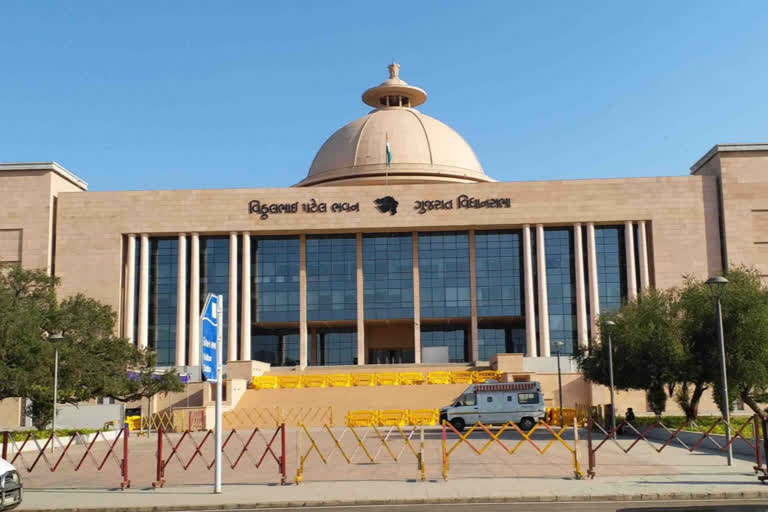Gandhinagar: The Gujarat Assembly passed a bill unanimously on Tuesday seeking to regularise unauthorised constructions in urban areas by collecting "impact fees" from the owners. On the first session of the Assembly, the "Gujarat Regularisation of Unauthorised Development Bill-2022" was passed unanimously.
The bill replaced an ordinance issued by the previous BJP government in October for the regularisation of unauthorised constructions in cities and towns. While tabling the bill, Legislative and Parliamentary Affairs Minister Rushikesh Patel said a recent survey showed that nearly 42 per cent of buildings in eight major cities and 87 per cent of buildings in the jurisdiction of 156 municipalities did not have the mandatory "Building Use" or BU permission.
The bill provides for the regularisation of such unauthorised constructions within the jurisdictions of municipal corporations, urban development authorities and municipalities on payment of Impact Fee. The Act was needed because many people will become homeless or lose their livelihood if such buildings were to be demolished for not having BU permission, minister Patel said.
Also read: Shankar Chaudhary elected unopposed as Speaker of Gujarat Assembly
Congress MLA Arjun Modhwadia made a statement in the House that many buildings are unauthorised in the corporation area of the state, while in the Ahmedabad East area, more than 2,00,000 houses do not have BU permission, while many corporators are illegal to run their houses.
The Impact Fee collected from property owners will be put in an Infrastructure Development Fund, which will be used for strengthening infrastructure facilities, setting up fire safety systems and creating parking facilities, he added. The Impact Fee will be in the range of Rs 3,000 to Rs 18,000 for unauthorised residential construction between 50 square metres to 300 square metres. An additional Rs 150 would be charged for every square metre of construction above 300 square metres. The fee will double if the property was used for other than residential purposes, the bill said. (With Agency Inputs)



